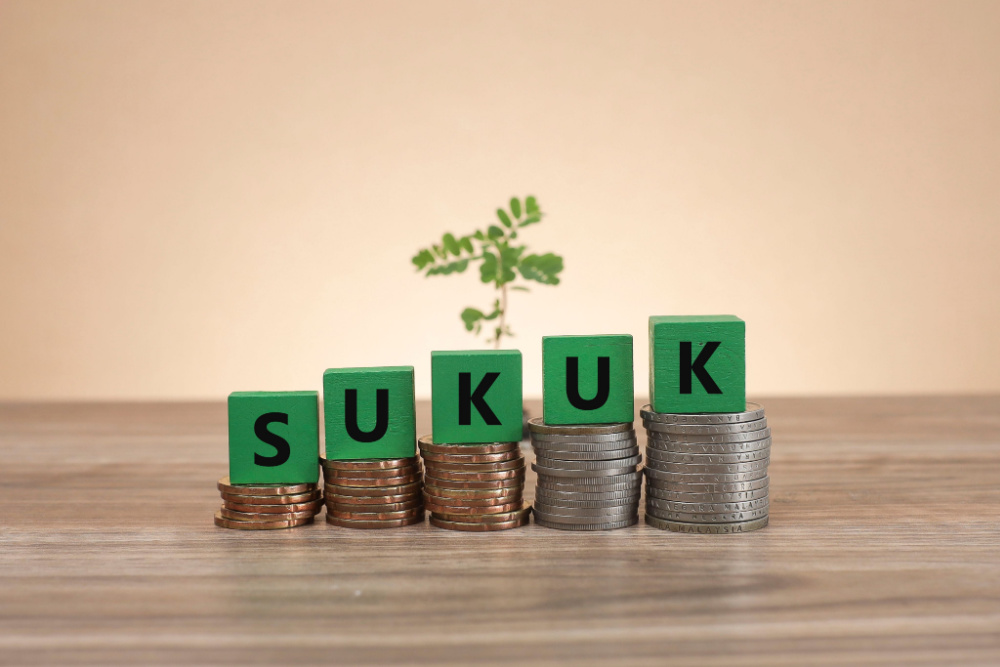Sukuk sees traction on the back of green demand

Despite a recent slowdown in annual growth volumes, Islamic finance experts regard sukuk as an important route to achieving global green goals
First Abu Dhabi Bank made headlines recently when it announced a five-year $500m sukuk or Islamic bond. Citing strong investor interest even in the face of a looming global economic downturn, it was the first global sukuk issuance of 2023.
The growing use of sukuk was a key discussion point among industry experts gathered at the Islamic Finance Business Leaders Forum organised by MEED and Mashreq.
In its latest report, credit analyst Fitch Ratings stated that while sukuk issuance in core markets in 2022 fell 7.9 per cent to $244.3bn compared with 2021, the medium-to-long term outlook is positive given investor demand, issuer refinancing needs and government support.
Moreover, the sukuk market is experiencing a directional change due to a growing number of sustainable sukuk issuances. In 2021, ESG sukuk issuances reached $6.1bn, led by Indonesia and the GCC, according to a report by Refinitiv.
ESG sukuk has also steadily increased its share within the global sukuk space, growing from 0.4 per cent of total sukuk volumes issued to 4.3 per cent in the first half of 2022.
The GCC has marked a stable rise in the volume of issuances and structural frameworks to scale ESG-linked sukuk. In May 2019, Dubai-based real estate developer Majid al-Futtaim (MAF) launched the region’s first corporate green sukuk, following it up with a second offering in October 2019.
Saudi Arabia’s Islamic Development Bank, meanwhile, raised $2.5bn with its green sukuk in March 2021, while the kingdom’s Riyad Bank closed a $750m green Islamic bond in February 2022. A month later, Bahrain-based infrastructure fund Infracorp issued a $900m green sukuk on the London Stock Exchange.
Meanwhile, Dubai Islamic Bank (DIB) priced its first sustainable sukuk in November 2022, a $750m issuance with a tenor of five years.
The green opportunity
Long-established sukuk are Islamic finance capital market instruments that provide returns like conventional fixed-income products such as bonds but whose terms and structures are Shariah-compliant.
Upon the issuance of sukuk, the issuer sells certificates to investors and uses the proceeds to purchase the asset. Investors thus receive partial ownership of the asset, as well as part of the profits generated, as interest is forbidden under Shariah law.
Sukuk is the second-largest contributor to the Islamic finance sector behind the banking segment, with over $74.5bn of issuances in the first half of 2022, according to S&P Global Ratings.
“You’ll be surprised to note that whenever a sukuk is issued, the typical investor profile consists of institutional investors from the West and the Far East, given their interest in the fixed income stream,” said Sohail Zubairi, AAOIFI certified sharia advisor and auditor and IICRA accredited Islamic finance arbitration expert. “They’re confident this is the correct way to invest.”
Because of the sector’s fundamental alignment with ethical investing, Islamic finance and its instruments are well suited to driving socially and environmentally responsible investing. Sukuks cannot be used to finance impermissible activities and are structured to avoid high degrees of leverage and speculation.
With ESG rising to the top of companies’ agendas, green or sustainability sukuk is growing in importance. According to estimates from the UKIFC, $30bn to $50bn of capital dedicated to sustainable development goals (SDGs) could be raised through green and sustainability sukuk by 2025.
In the GCC, governments are heavily investing in sectors such as clean energy and vehicles, while businesses are incorporating ESG principles in their operations and financial models. This provides a significant opportunity for green investors to tap into.
“The misunderstanding is that green financing is not attractive because it does not have good returns. This is false,” said Zubairi. “Green bonds are performing well – the global market has crossed $2tn already. But the real issue is the lack of proper criteria to measure green sukuk.”
Zubairi emphasised the need to develop parameters similar to conventional green bonds based on standards such as the Climate Bonds Initiative (CBI).
Furthermore, the ESG maturity model requires a rating system to see how various sukuk issuances are performing and how the proceeds are utilised. This, said Zubairi, will help convince investors that their investments are being deployed effectively.
“In my opinion, green sukuk should not be limited to the large government-related entities or sovereigns or private institutions,” said Jawaad Chawla, a UAE-based senior corporate and structured finance and banking leader, and an Islamic finance specialist. “We need to promote the capital market at the mid-corporate level, and then possibly trickle it down to the SME level.”
Chawla highlighted that while 80-85 per cent of companies registered with UAE banks are SMEs, they only constitute about 15 per cent of banking balance sheets, showing “tremendous opportunity on the capital market front”.
“If we create a sukuk market in the mid-corporate space, it will firstly enhance the local capital market industry. And it will improve access to capital for these corporates by bringing them directly to high-net worth individuals or institutions.
“Further, if developed in a green format, these sukuks could further support both the corporates as well as the environment by deploying the capital for sustainable purposes. It will help create strong synergy and harmony.”


